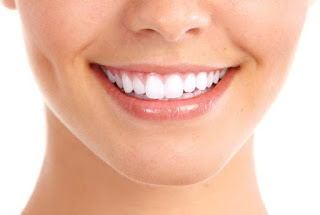 Would you believe, teeth whitening actually improves your chances of getting ahead in life? Most people, who have not considered teeth whitening, understand how big of a difference it can make. However, there is now statistical evidence collected from a series of studies that show people with whiter, brighter smiles tend to do better both in social and in professional environments. For example, one study has shown that women tend to judge men by their teeth, with over 71% of them preferring a man with a bright and confident smile. The same pattern, of people with whiter teeth getting an edge, continues with jobs. We found that people seeking a dream job are 58% more likely to land it if they have great teeth. People who had whiter teeth were also favored when it comes to promotions and raises. The data shows that people who have had their teeth whitened were favored for promotions and raises by 53%. All of this proves what many of us have known for a long time - a winning smile opens doors.
Would you believe, teeth whitening actually improves your chances of getting ahead in life? Most people, who have not considered teeth whitening, understand how big of a difference it can make. However, there is now statistical evidence collected from a series of studies that show people with whiter, brighter smiles tend to do better both in social and in professional environments. For example, one study has shown that women tend to judge men by their teeth, with over 71% of them preferring a man with a bright and confident smile. The same pattern, of people with whiter teeth getting an edge, continues with jobs. We found that people seeking a dream job are 58% more likely to land it if they have great teeth. People who had whiter teeth were also favored when it comes to promotions and raises. The data shows that people who have had their teeth whitened were favored for promotions and raises by 53%. All of this proves what many of us have known for a long time - a winning smile opens doors.
If teeth whitening can, in fact, open doors, then it becomes even more important that you find a way to maintain the whiteness of your teeth after having the procedure done. It typically does not matter if you have had an over the counter whitening done or have come in to have your teeth whitening done by a professional, after a period of time the teeth start to get stained again. Diet and oral hygiene habits play a pivotal role in changing your tooth coloring, so it is important to understand some of the basic fundamentals. There are a few simple do's and don'ts that you should follow, which will help to maintain the pearly whiteness of your teeth for a longer period of time, and makes sure that you are not missing any of the opportunities coming your way.
The worst thing you can do after a teeth whitening procedure is to consume products that work to reverse the process by re-staining your teeth. While many of us live healthier lifestyles, it is important to realize that even in natural food there are dyes and colors that can have an adverse effect on your teeth. One example we like to give people is the coloring found in berries, with blackberries being a particular culprit. These can stain your teeth just as easily as the chemical dyes found in slightly less healthy products and should be rinsed off immediately after consumption. The effects of coloring in food, on your teeth, can be mitigated to a large degree by being careful about rinsing your mouth after consuming these products. We advise everyone to rinse or brush after every meal in order to prevent this.
Other products that can have a staining effect, and may not be so healthy, are tea and coffee. Both of these are very frequently used in today's high-speed world, and both have naturally occurring coloring that can stain your teeth. If you do drink a lot of tea and coffee, you should definitely consider making rinsing and brushing, several times per day, part of your routine in order to prevent them from undoing all the good work done by your teeth whitening procedure.
